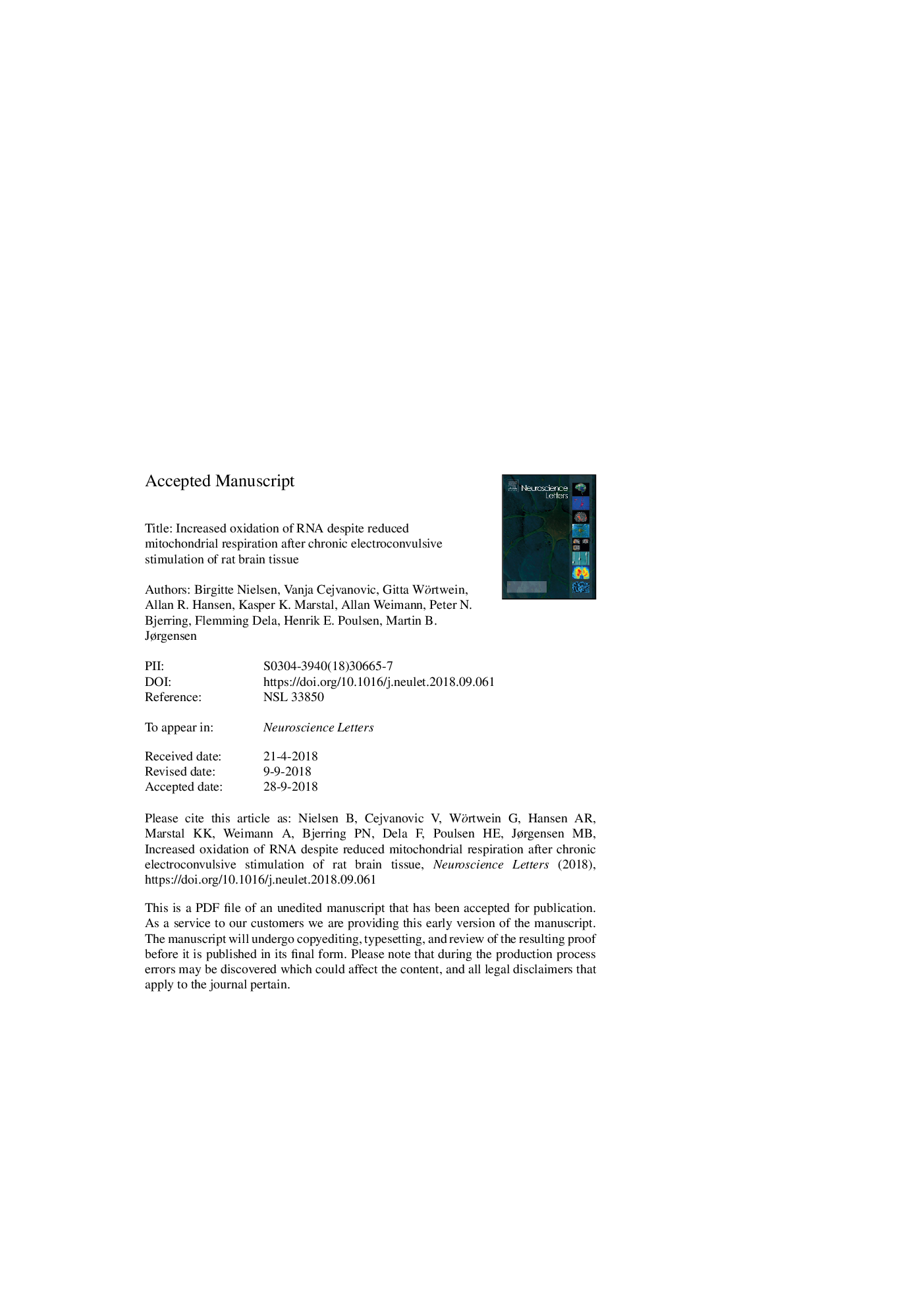| Article ID | Journal | Published Year | Pages | File Type |
|---|---|---|---|---|
| 11008238 | Neuroscience Letters | 2019 | 16 Pages |
Abstract
Major depressive disorder (MDD) affects 350 million people worldwide and is a serious socio-economic burden. The most efficient treatment of MDD is electroconvulsive therapy (ECT), which has been shown to influence the oxidative status believed to be part of the pathophysiology of MDD. We investigated the effects of chronic electroconvulsive stimulation (ECS) on mitochondrial respiration and mitochondrial hydrogen peroxide production, RNA oxidation, and the content of mitochondria in the piriform cortex of the rat. We found reductions of mitochondrial respiration in respiratory states 2 and 3 by 33% and 32%, respectively, and a 23% reduction in electron transfer capacity. RNA oxidation, as measured by 8-oxo-7,8-dihydroguanosine, was increased by 58%, while mitochondrial production of H2O2 was unaffected. The increased oxidative stress may thus be ascribed to extra-mitochondrial sources.
Related Topics
Life Sciences
Neuroscience
Neuroscience (General)
Authors
Birgitte Nielsen, Vanja Cejvanovic, Gitta Wörtwein, Allan R. Hansen, Kasper K. Marstal, Allan Weimann, Peter N. Bjerring, Flemming Dela, Henrik E. Poulsen, Martin B. Jørgensen,
